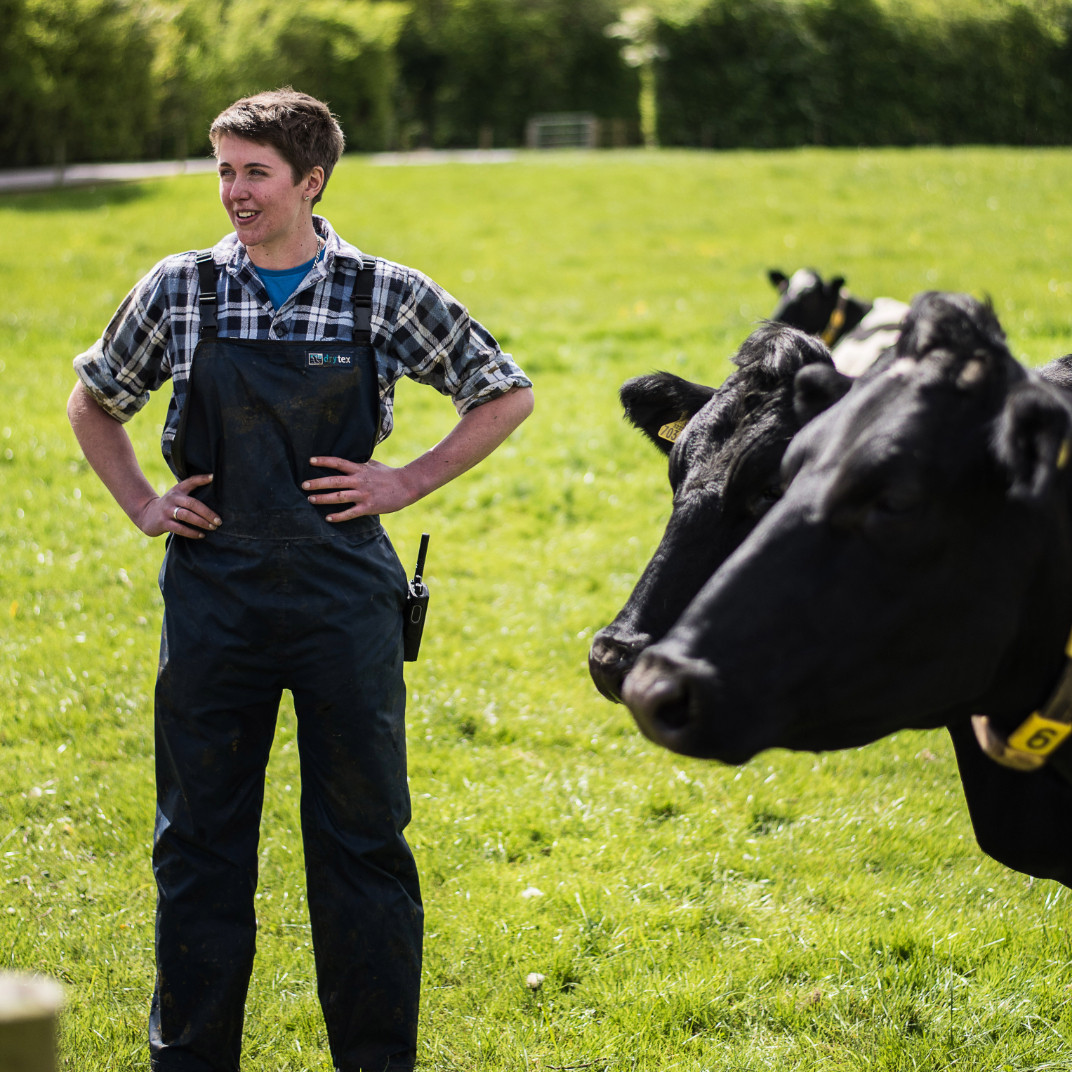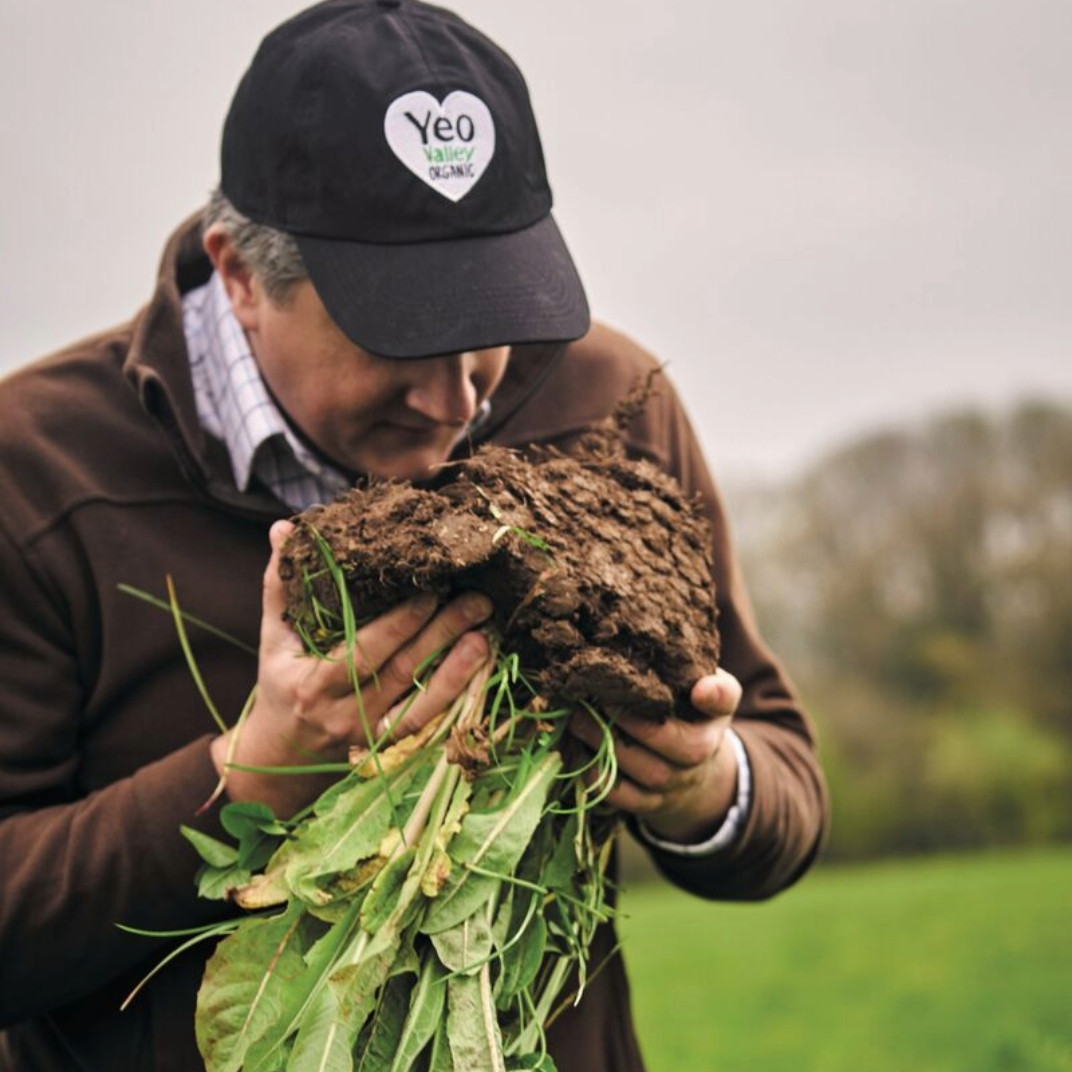
Climate
We believe Yeo Valley Organic is climate positive - and we're working hard to prove it.
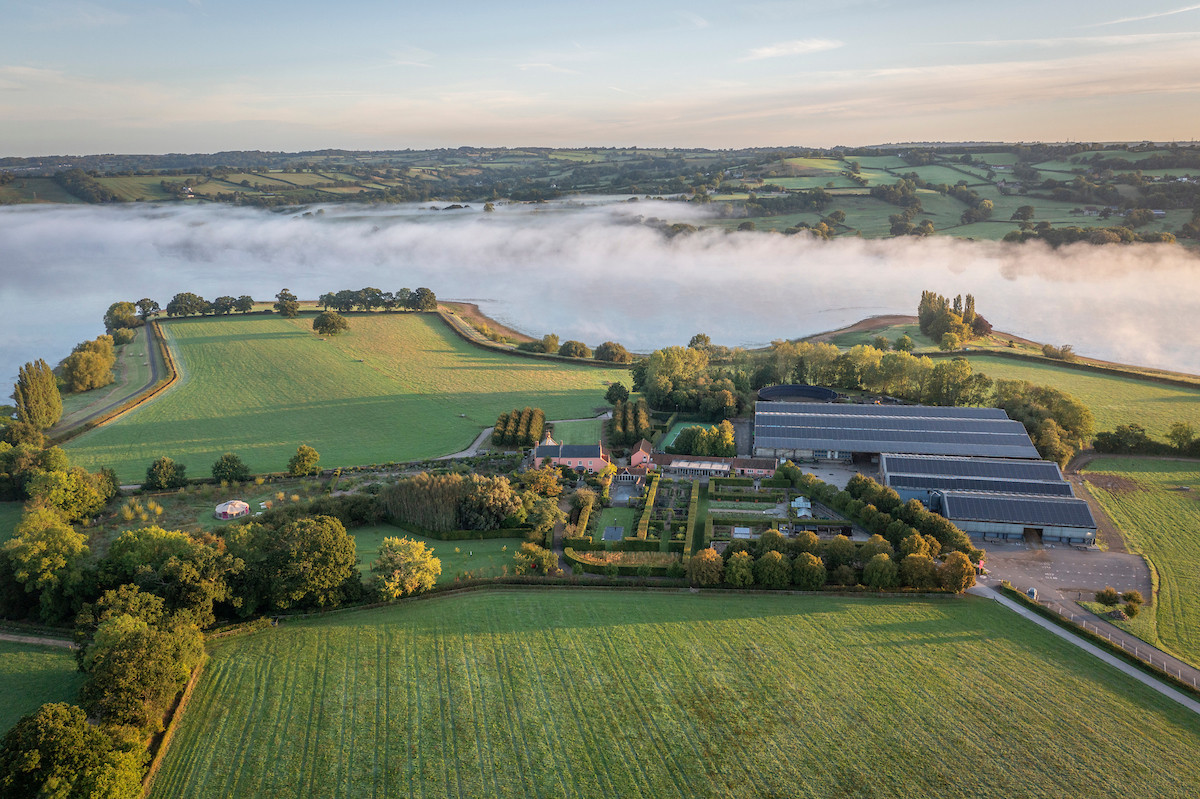
What do we mean by 'climate positive'?
After 30 years of organic farming in the valley, we believe we are climate positive which means we sequester (absorb) more carbon across our value chain, than we emit.
Why do we believe we're climate positive?
We use ingredients from regenerative organic farming systems.
Regenerative organic soils sequester lots of carbon (around 3.5 tonnes more per hectare on average) and regenerative organic farms also sequester carbon in on-farm, above ground biomass.
We're working directly with supplying farmers and Agricarbon and the Farm Carbon Toolkit to maximise soil health, sequestering more carbon.
Regenerative organic farms minimise external inputs like fossil-fuel derived fertilisers and imported animal feed - instead making the most of on-site resources like manures and clover-rich grasslands.
Regenerative organic systems generate wide-ranging benefits to biodiversity, animals, air and water.
Our product partners have been reducing emissions across the entire product value chain for a number of years and will continue to do so.
We're against offsetting in principle and will not rely on the purchase of external carbon credits to make a claim.
A number of our supplying farms are already sequestering more carbon than they emit.
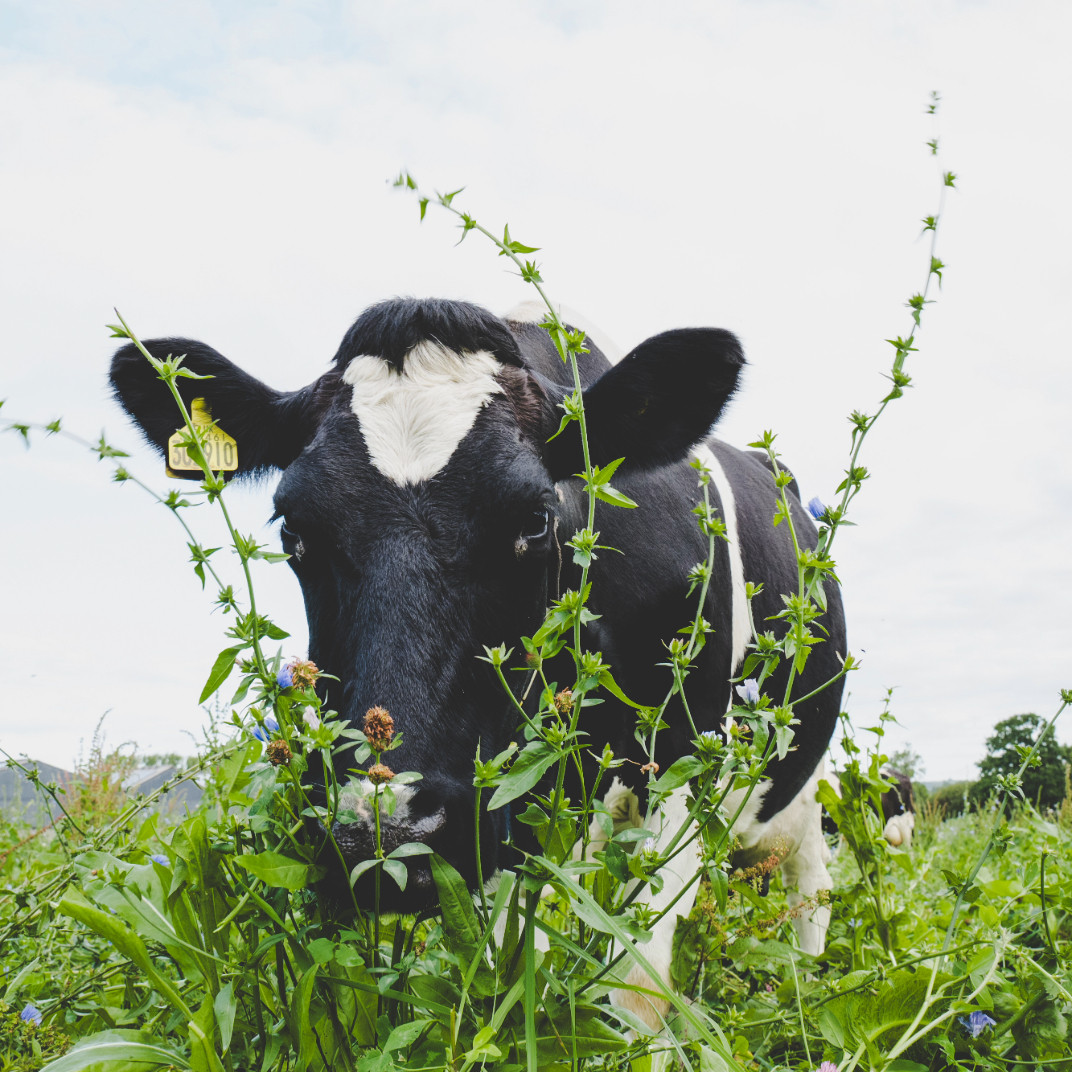
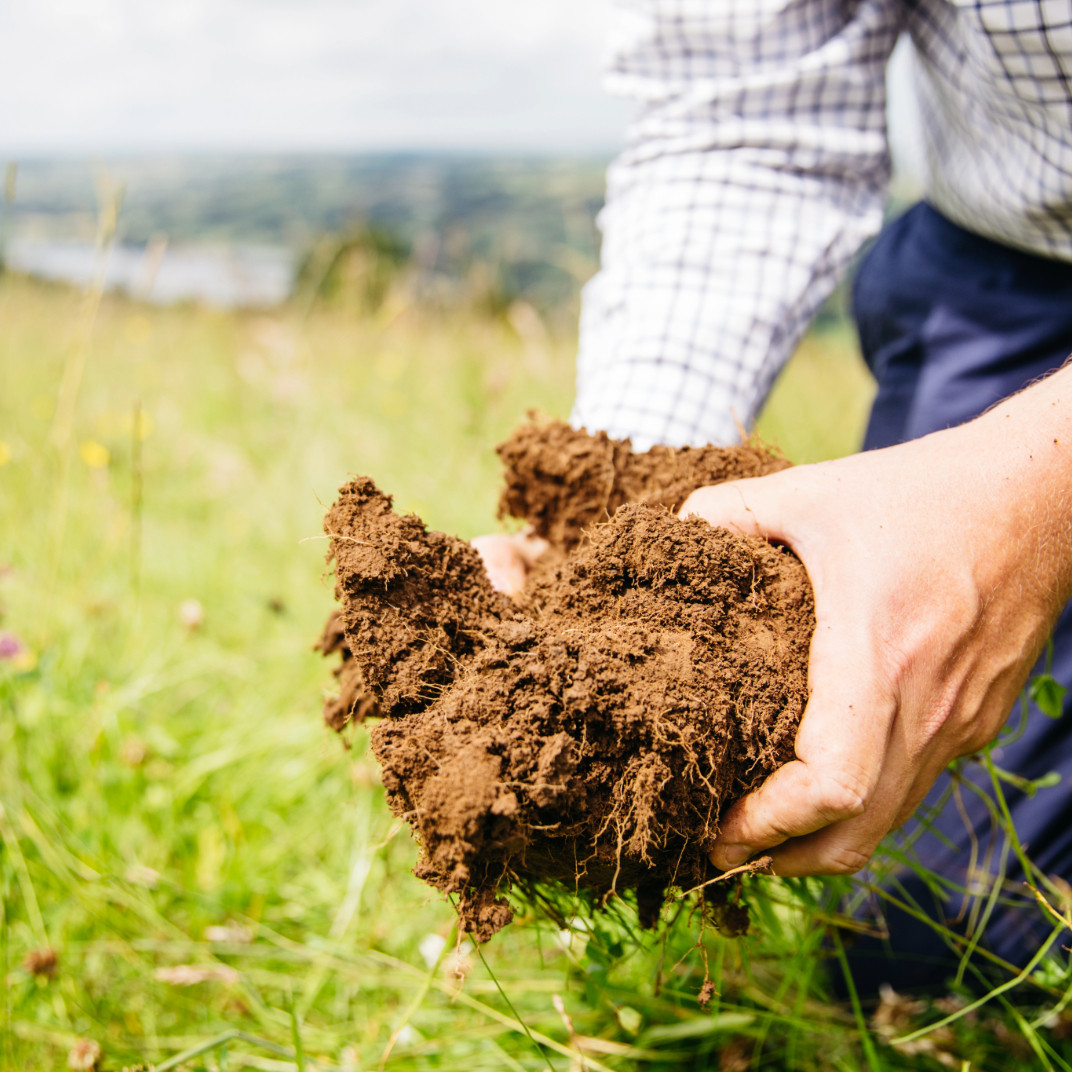
Actions we're taking to prove it
Over the next 15 years, we will work to prove out our climate positive belief, undertaking regular assessment of our climate impact using progressive methodologies to incorporate the evolving science on methane, soil carbon, above-ground biomass, and the wider benefits of organic systems.
And these are 5 things our supplying partners will also need to to do:
Undertake soil carbon sampling across supplying farms (ideally reaching 100% farm coverage) using a measure-manage-measure approach, and share this data with us.
Create and share carbon sequestration maximisation plans with supplying farms.
Create and share their approach to understanding and reducing the impact of methane.
Continue to reduce operational upstream and downstream emissions in line with their own regulatory/customer requirements (e.g. SBTi Net Zero).
Share farmer stories including those who are already climate positive.
